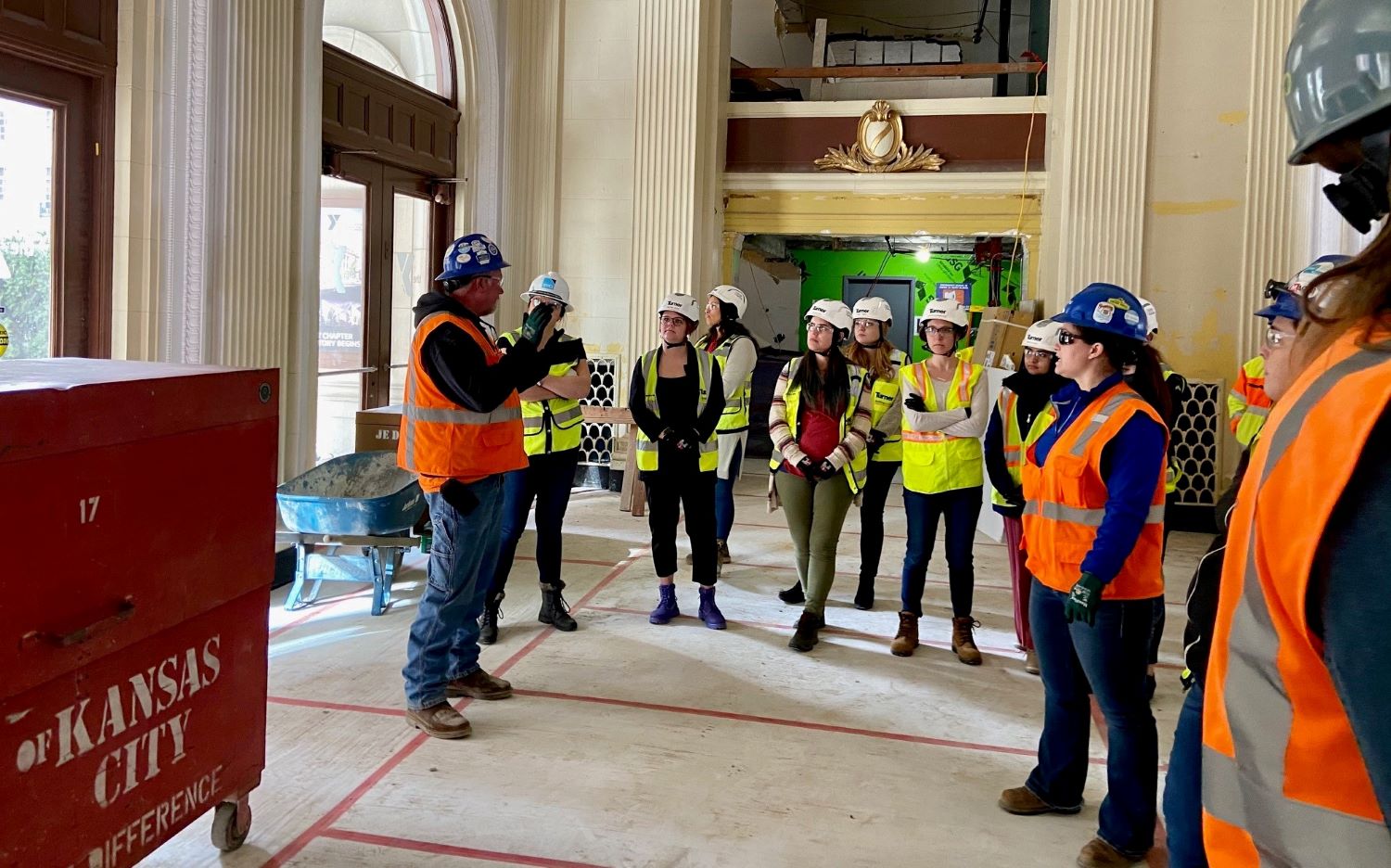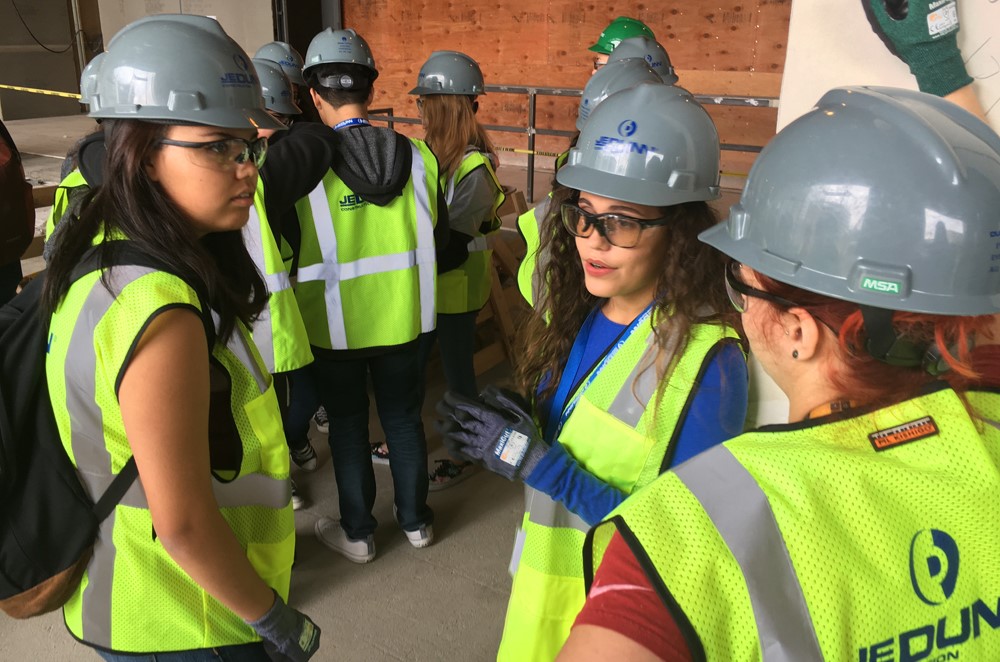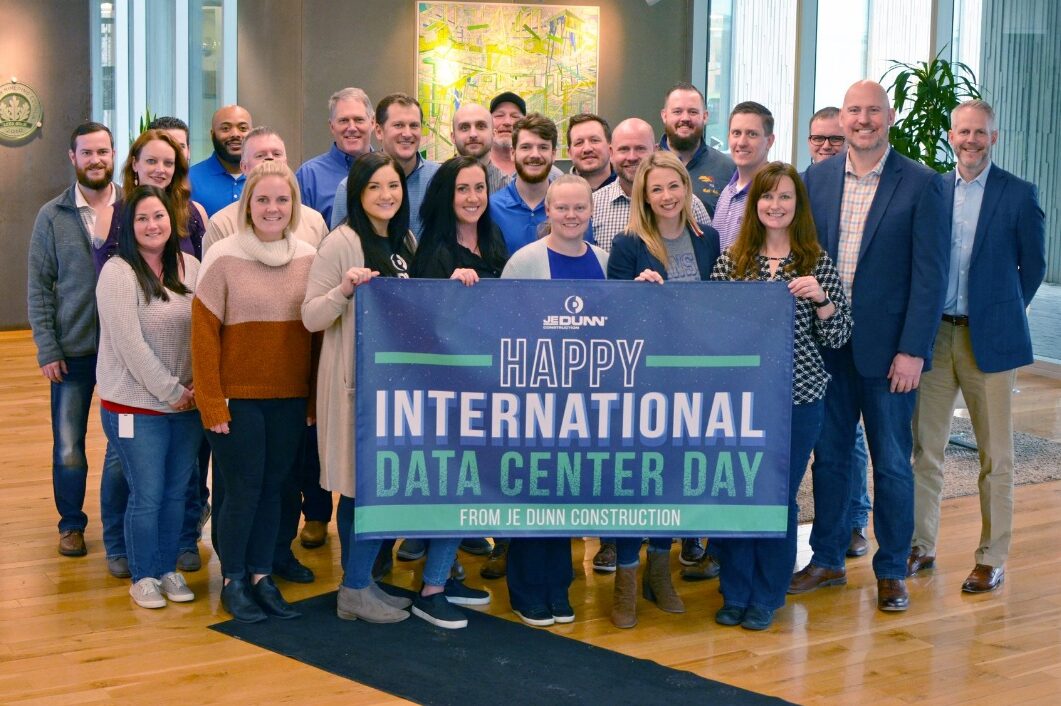JE Dunn: Journey from a Family Legacy to Champion the Space
An employee-owned general contractor – JE Dunn has been around since 1924. The company provides construction management services through 23 offices nationwide, but its roots remain firmly planted in Kansas City.
This is a story of how a small, family-run residential contractor deep-rooted in its hometown and eventually grows into a legacy that is known nationwide. Whether it is in the ability to survive and thrive as a family and private business, or the way they have fostered loyalty among generations of employees. To explain this success, one thing we know for sure is this family has, for 95 years, committed to one core value – a principle that is essential for any small business that wants to thrive and represent its region.
Be a Part of the Community
The Dunn family is rigid about the importance of their founding values, as Bill Dunn says that stems from his father – the company founder, Ernie Dunn.
“If you are in a community, you have to be part of the community. And it was his idea that we be heavily involved in issues outside of construction.” Bill Dunn – the president recalls what his dad always insisted on.
When president Dunn took over full leadership of the company in 1974, he had plenty of issues to contend with. At the moment, the company was in debt after a buyout, the US economy had stagnated, and organized labor was prone to strikes. During this time, he reorganized and expanded the business’s scope of work, navigate the company through trials, and laid the groundwork for future growth.
All of which could only happen thanks to the mentality of ‘be a part of your community’ – that Dunn and his father has nurtured since day one.

Dunn recalls, in such uncertain times, when labor and management are having falling outs. He and other business leaders in the city have to get together at the Kansas City Chamber of Commerce to form a labor-management team. “There is a lot of things that go on in the state and around here that we might be able to work together on. Before that, there was always a big fight between labor and management on negotiations.”
However, when it comes down to labor in the fields. Dunn recalls a lot of leaders say they had never talked to ‘those people’. Apparently, nobody at the time knew who their workforce was and how to connect with them. Accept Dun – he knows many spoke-persons of the workforce who are good friends with his dad. So, Dunn volunteered to escort the operation. “They said that was a great idea because I did discover that probably 90 percent of the things that come up, we both agreed on.”
Been an employer and friend to their staff, the Dunn family has gained both the reputation of trustworthy management and key understandings about their hires and the labor community. With such capital, he was able to stand at the opposite sides of the pole and later set up the Labor-Management Council of Greater Kansas City, which is kind of unique back in the day because there is a co-chair for both labor and management. The rule is that if one side does not agree with an approach, they would just abandon it.
“We were able to get passed that at one period at a time after 125 different major issues came up where we joined hands and said we’re all for it.”
Decades after that, the lesson remains critical – doing business within a community, you have to be a part of it. And this comes in many forms.
A Win-Win Scenario
More involved in the business himself, Dunn was amazed at how his father has never wanted any recognition for anything he did, especially in the means of donations. After he died in 1964, a principal of a school in the city told Dunn, Ernie has been a close and generous friend to the school, every year he would find out what the school wanted and give them money out of his pocket to take care of that.

Raised in the Northeast, Ernie was aware of how necessary it is for kids to get to school with proper materials and education. It is not only important for him on a personal level, but for the family business and community also. Small businesses are the backbone of the economy and stand behind small businesses are families and students of the region. That is why it matters so much to give back and continue to nurture not only your company, but on top of that is the ecosystem that you are thriving in.
Any success JE Dunn has earned – moving from a rental office to headquartered building like today with offices around the nation – was attributed to this saying: “Hire the best people you can find; treat them the way you want to be treated yourself; and if you make any money, share the benefits with them. So, we have always had that philosophy,” Dunn cites his dad’s motto.
Featuring that spirit is the company’s effort to open for school field trips, with notable programs like Girls in STEM. As Joel Pennick, a senior project manager puts it – introducing students to the construction profession during high school will expand their understanding of potential career options, at the same time filling the talent pool for the industry.
‘Start Them Young’

Besides the community, being able to connect with your teams also is an influential point. Today workers are young and innovative, they care a lot about their work environment. So, being able to navigate this trend and spend more time on the welcoming part of bringing new employees on – is quite essential. “We want to show these new talents the polish and class of an organization that values people,” Dunn adds.
Whether they are laborers, craftsmen, estimators, or project managers, make sure you prepare for their first day, with a greeter and a buddy to pair up. Especially, it is your consistent follow-up that outweighs all forms of gifts.
Like the saying ‘start them young’, while they are still freshmen, remind your teams that you are there to help them be the best that they are capable of. That sort of commitment, made by leaders and business owners, can go long in getting that loyalty that all company wants from a worker!
Repeat Business or You Will Be Out of Business
Another thing the Dunn family emphasizes, as both a contractor and a business owner is that “If you do not have repeat business, you will be out of business.”. After years of winning locally, Dunn decided to expand his family business to other parts of the country, which proved to be quite a challenge. “I really had to learn the hard way,” the president recalls, when entering new colonies, he often found that companies wanted to hire local firms – regardless of their high bid, because it is quite essential to create local connections if you want your expansion to find success in these emerging markets.
But on top of all, it’s due to the way you treat your clients, design teams, subcontractors, and material suppliers – who supports and reinforces your business. There is an exotic habit within this space, he says, that contractors have always been notorious for ‘shopping bids’. Taking bids and then auctioning them off to whoever would go lower. However, that is not how you build a sustainable business, “if I ever catch anybody shopping subcontractors’ bids or materials suppliers’ bids, they are gone.” And that discipline has helped the company up in a totally competitive bid market.
Outgrow with a Big Culture Transformation

For the shake of expansion, JE Dunn finally has its first ‘outsider’ CEO join the force. Yet, according to President Dunn, when you are planning to tackle the nationwide and beyond, it is essential not to limit your team’s talent. Gordon Lansford – the company CEO has stayed for a long time, and when you recognize somebody is loyal and has such a great capacity – it is a wonderful time to let them lend you their hands and help you run your business.
More from the conversation, Lansford talks about the ups and downs since he joint management and why ‘construction companies are actually accounting companies’?
With a background in accounting and history working at the KPMG, yet Lansford has been assisting the Dunn family’s business for over 17 years. And his first project was not ordinary. “As a CEO at a construction company with an accounting background. I don’t have the traditional first project experience as some others in the industry,” he explains, but instead, his major undertaking in this role was a company-and-culture changing mission.
Around 2010, the team began transforming the firm from a family-owned to a partially employee-owned operation. He set up the Employee Stock Ownership Plan as a retirement means for their employees and created a vesting schedule. According to the CEO, this transformation happens for many reasons, yet one of the biggest revolutions has been to their culture.
By creating transparency from the top, showing a clear picture of success, and creating a sense of ownership among teammates, everyone would be motivated to pull in the same direction and genuinely want to make themselves and the company better. That is the beauty of the private sector!
We have heard how important it is to be customer-centric. But how to execute it properly, particularly within this space?
“It may sound cliché, but it really comes down to listening to your clients,” Lansford insists. Companies should consider this relationship and see clients as business partners, you are not simply their builders. You should make it to a point where you understand thoroughly their goals, limitation, and definition of success before taking over projects. This way, contractors would deliver certainty of results as well as recognize that no two projects are the same.
More importantly, besides providing the most diverse workforce with specialties in a wide range of construction sectors, being client-oriented should be a key element that exists amongst all. Rather than just being a low-cost provider, you should thrive to build a business based on relationships – that is what will create repeat business.
It’s about staying open and transparent. Any construction project is going to run into hurdles, but it’s how you approach those problems with your client that moves you forward. “If you are working through a design or construction issue, you should make sure your communication is completely open with customers, so they can know the real-time status of the situation.” – says Fred Tull, the firm’s Preconstruction Services Manager.
On the series Behind the Build, manager Tull also mentions the most challenging part of working in construction that he has recognized after years working with builders and teams across the country.
“For me, the most challenging part is that there are a lot of egos in construction,” Tull explains. This is a fascinating industry because there are no child prodigies in construction; you have to have the experience to get what you want out of it. Frequently, a lot of older workers do things the way they have always done for the last 20 years. It can be challenging when they think that their way is still the best way.
Changing mindsets and getting people out of their set ways can be a struggle, but it’s worth the time. At least, that was how his firm has gone a long way to positive building experiences from many sides of the business.
Construction Companies Are Accounting Companies?
“Construction companies are really accounting companies that happen to build buildings.” JE Dunn’s chief information officer, John Jacobs, states the fact that the firm was already successful earning roughly $3B in revenue each year.

What he means is that a successful contractor knows how to spend smartly. Inefficiencies that are costing businesses notable time and money usually come from poor communication across their large network of offices and job sites. That lack of communication leads to a lack of accountability and finally uses teams to overspend.
According to Jacobs, with tons of disadvantages, yet firms still use pen and paper instead of digital alternatives. This is another way to say, they are avoiding the challenging work of adapting and missing out on tools that would permanently boost efficiency without wasting money.
It is not because leaders are stuck in the past or recent technology is not sufficient enough. But rather, there are two central challenges that have been keeping them from seriously investing in new solutions.
First, you might prefer quick and inexpensive solutions. Therefore, technology is sometimes considered as an unnecessary risk rather than a powerful advantage. Business owners with this view often try to cut costs by purchasing quick solutions to solve problems immediately.
Second, they do not notice the long-term benefits of a unified solution and are concerned about this initial investment.
“Short-term gain equals long-term pains, unfortunately!” Jacobs explains technology and IT teams should be used to solve real problems rather than simply buying small and temporary solutions.
The Bottom Lines
Consistently ranked among ENR’s top 300 contractors in several of their specialty areas. This firm has played the right card navigating through downturns, not just with up-to-date strategies but also meaningful and savvy values. They win the game by winning people!









